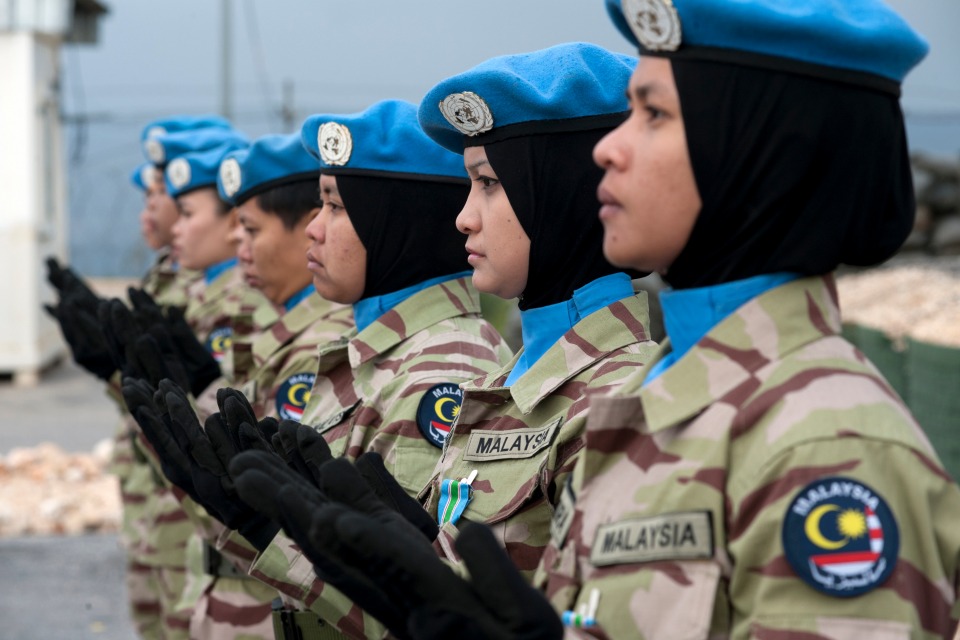"More must be done to promote the role of women in post-conflict peacebuilding processes"
Statement by Ambassador Shearman of the UK Mission to the UN at the UN Security Council debate on Peacebuilding in the Aftermath of Conflict

Thank you, Madam President, for convening this debate. I would also like to thank the Deputy Secretary-General, the Chair of the Peacebuilding Commission, and the Administrator of UNDP for their briefings.
Madam President,
I would like to focus on three issues: first, improving the UN’s ability to plan, adapt and drawdown its peacebuilding interventions; secondly, the role of women in peacebuilding; and thirdly the 2015 review of the peacebuilding architecture.
Madam President,
As others have said, this Council will reach an important milestone as we close down the UN’s Mission to Sierra Leone. The people of Sierra Leone have worked hard to stabilise their country and, although they still face many challenges, they are now on the path to a brighter future.
The United Nations should be proud of the central role it has played in helping Sierra Leone recover from its devastating civil war. It is an example of how effective, tailored and well-planned UN peacebuilding interventions can improve people’s lives.
In 1992, former Secretary-General Boutros-Ghali introduced the concept of peacebuilding in his ‘Agenda for Peace’. Since then, this Council has launched numerous missions with mandates that recognise the importance, not simply monitoring a ceasefire, but also of building an enduring peace. Countries that had once torn themselves apart in civil wars, such as Liberia and Cote d’Ivoire, have made considerable progress in building stability, aided by UN Missions. The experiences of over two decades of UN peacebuilding have taught us that strong national ownership of inclusive peacebuilding processes and a focus on building national institutions are essential to securing a sustainable peace.
However, recent relapses into conflict in the Central African Republic and South Sudan demonstrate that we must constantly review and improve our approaches to peacebuilding.
Peacebuilding is becoming more complex and challenging for the UN, as new drivers of conflict emerge, such as organised crime, drug trafficking and the illicit trade in natural resources. We must rise to these new challenges. The UN must improve the way it analyses conflict, plans and reviews missions, and prepares for transitions.
In each mission-setting, the UN should undertake rigorous analyses of the conflict and its causes in order to understand how to focus and prioritise its peacebuilding activities. Missions must coordinate closely with partners on the ground, including the UN country team. UN agencies, funds and programmes play an important role in delivering critical peacebuilding tasks, and arrangements such as the global focal point for police, justice and corrections are essential to ensuring a joined-up ‘One-UN’ approach to peacebuilding.
In addition, we need systematic reviews of existing missions to consider regularly whether a mission’s mix of military, police and civilians remains appropriate in the light of changing circumstances in the field. And finally we need to ensure that there is a clear plan for drawing down each missions when we can responsibly do so.
In turn, as Council members, we have a responsibility to ensure that the mandates we provide to UN missions are focused, realistic and prioritised.
These steps will allow UN peacebuilding interventions to be more dynamic, and ensure that they have the right focus and capabilities to help host governments of countries build a lasting peace.
Madam President,
I would now like to turn to the issue of Women and Peacebuilding – a high priority for the United Kingdom. Since the end of the Cold War, women have represented only four percent of signatories to peace agreements, less than three percent of mediators of peace talks, and less than ten percent of anyone sitting at the table to negotiate on behalf of a party to conflict. More must be done to promote the role of women in post-conflict peacebuilding processes.
In that regard the adoption of Security Council Resolution 2122, last October, was a positive step forward. Full implementation by all stakeholders is now key. The UK, for its part, is actively working to promote women’s participation in peacebuilding. For example, on Syria, we provided the National Coalition with negotiation training on gender issues and women’s participation. And we played a leading role in increasing women’s representation at the last round of Geneva II talks.
We continue to call on Special Representatives to the Secretary-General and Special Envoys to establish regular consultations with women’s organisations, and to work with civil society to support women’s leadership. We also continue to call on the Secretary-General to strengthen gender training and experts in mediation teams, and to support the appointment of senior women as UN mediators. As the Ambassador of Rwanda said, “increasing women’s participation in leadership and peacebuilding is a practical necessity, not a philosophical proposition”.
Madam President,
I would like to conclude with a brief word on the 2015 Review of the UN’s Peacebuilding architecture. This will be an important moment for all of the UN bodies involved in peacebuilding activities. The United Kingdom believes that the review should not focus solely on the institutions established in 2005. But that it should consider the effectiveness of all of the UN’s activities on peacebuilding and the contributions made by all of the UN’s operational peacebuilding arms including the Secretariat and agencies, funds and programmes. Since 2005, peacebuilding has moved on and is now much more mainstreamed into the day-to-day work of many parts of the system. A narrow focus on the Peacebuilding Commission, Peacebuilding Fund and Peacebuilding Support Office will not provide member-states with a genuine evaluation of the effectiveness of the UN’s peacebuilding activities.
I thank you, Madam President.